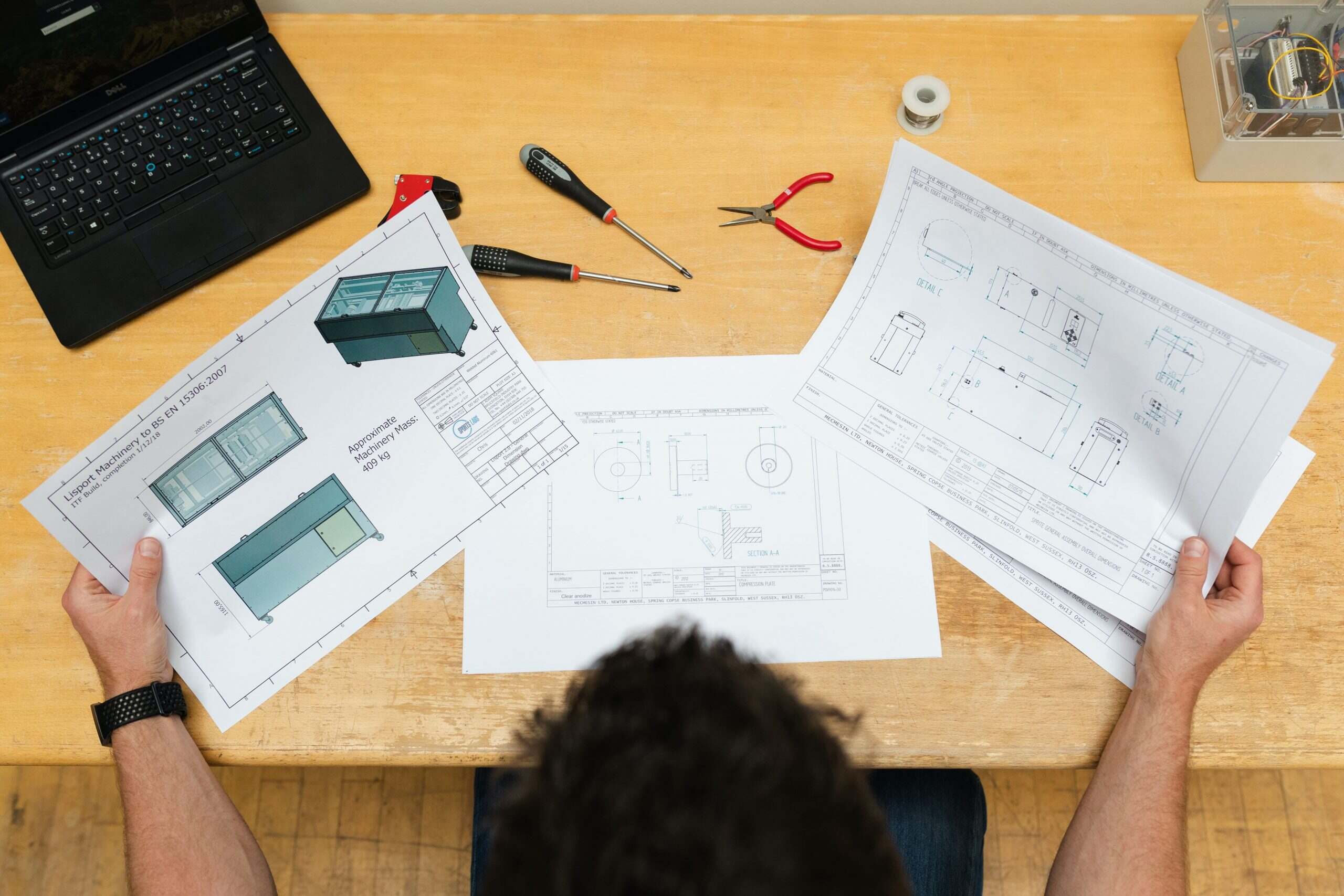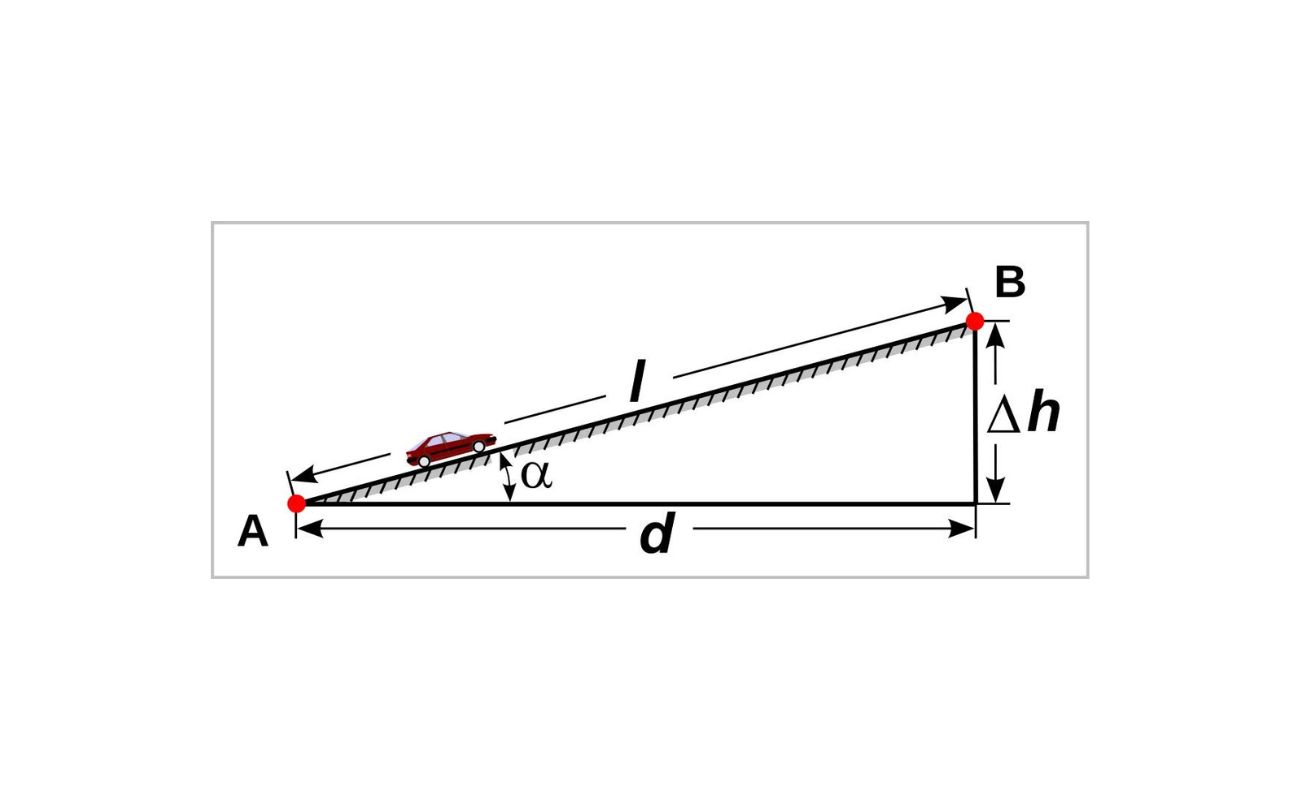Home>diy>Planning & Engineering>What Courses Are Required For Civil Engineering


Planning & Engineering
What Courses Are Required For Civil Engineering
Modified: January 9, 2024
Learn the essential courses needed in planning engineering for a career in civil engineering. Gain the skills and knowledge necessary to excel in this field.
(Many of the links in this article redirect to a specific reviewed product. Your purchase of these products through affiliate links helps to generate commission for Storables.com, at no extra cost. Learn more)
Introduction
Welcome to the exciting world of civil engineering! If you have a passion for creating and designing structures that shape the world around us, then civil engineering might be the perfect career choice for you. As a civil engineer, you will play a crucial role in the planning, design, and construction of various infrastructure projects, such as buildings, bridges, highways, and dams. To pursue a successful career in civil engineering, it is essential to acquire a strong educational foundation.
In this article, we will delve into the courses that are typically required for a civil engineering degree. These courses cover a wide range of subjects, from basic sciences and mathematics to specialized engineering principles and design techniques. By understanding the curriculum and the skills you will develop throughout your educational journey, you will be better prepared to embark on a fulfilling career in civil engineering.
Key Takeaways:
- A strong foundation in basic science and mathematics is crucial for excelling in civil engineering, providing the necessary tools and concepts to analyze and solve engineering problems.
- Specialization courses in civil engineering allow students to gain in-depth knowledge and expertise in their chosen field, shaping their career path and preparing them for real-world engineering challenges.
Read more: What Is A Civil Engineering Technician
Basic Science and Mathematics Courses
In order to excel in civil engineering, a strong foundation in science and mathematics is crucial. These courses provide the fundamental knowledge and skills needed to understand the principles that govern the behavior of structures and materials. Some of the basic science and mathematics courses that are typically included in a civil engineering curriculum include:
- Calculus: Calculus is an essential mathematical tool for civil engineers. It provides the basis for understanding rates of change and is used to solve problems related to optimization, differential equations, and integration.
- Physics: Physics courses cover topics such as mechanics, thermodynamics, and electromagnetism. Understanding the principles of physics is vital for analyzing the behavior of structures under different forces and conditions.
- Chemistry: Chemistry courses introduce students to the properties of materials and their reactions. This knowledge is important for understanding the behavior of construction materials, such as concrete, steel, and asphalt.
- Statics and Dynamics: These courses focus on the principles of static equilibrium and the analysis of forces acting on objects. They provide the foundation for understanding the behavior of structures and the forces they experience.
- Linear Algebra: Linear algebra is used extensively in the field of civil engineering for solving systems of linear equations and analyzing structures with multiple variables.
These courses establish the building blocks of knowledge that you will apply throughout your civil engineering career. They provide the necessary tools and concepts to analyze and solve engineering problems.
While these courses may seem challenging, they are designed to equip you with the necessary mathematical and scientific skills to excel in your specialized civil engineering courses. Embrace these courses as opportunities to develop a solid foundation for your future engineering endeavors.
Engineering Core Courses
Once you have completed the basic science and mathematics courses, you will move on to the core engineering courses. These courses provide a deeper understanding of engineering principles and practices and lay the groundwork for the more specialized civil engineering courses that follow. Some of the common engineering core courses you can expect to take as a civil engineering student include:
- Engineering Mechanics: This course focuses on the principles of statics, dynamics, and mechanics of materials. You will learn how to analyze and calculate forces, moments, and stresses in structures and materials.
- Fluid Mechanics: Fluid mechanics is a branch of engineering that deals with the behavior of fluids, including both liquids and gases. This course will teach you about fluid properties, flow behavior, and the principles governing fluid motion.
- Structural Analysis: Structural analysis involves understanding how structures behave under different loads and conditions. This course introduces methods for analyzing and designing structures, such as beams, trusses, and frames.
- Geotechnical Engineering: Geotechnical engineering focuses on the behavior of soil and rock and its interaction with civil engineering structures. You will learn about soil mechanics, foundation design, and soil stabilization techniques.
- Transportation Engineering: Transportation engineering deals with the planning, design, and maintenance of transportation infrastructure, such as roads, highways, and railways. This course covers topics like traffic engineering, geometric design, and transportation planning.
- Environmental Engineering: Environmental engineering explores the impact of engineering projects on the environment and teaches strategies for sustainable design and resource management. Topics covered may include water and wastewater treatment, air pollution control, and solid waste management.
These engineering core courses provide a broad understanding of different aspects of civil engineering and lay the foundation for your specialization. They are designed to equip you with the knowledge and skills necessary to tackle real-world engineering challenges.
While the coursework can be demanding, it is important to fully engage in these courses and actively participate in labs and projects. This hands-on experience will help you develop critical thinking skills and enhance your ability to apply engineering principles to practical situations. Embrace the challenges and opportunities that these core courses offer, as they will shape you into a well-rounded civil engineer.
Civil Engineering Specialization Courses
After completing the required basic science, mathematics, and engineering core courses, you will have the opportunity to specialize in a specific area of civil engineering that aligns with your interests and career goals. These specialization courses delve deeper into the principles and applications of the chosen field. Some common specializations in civil engineering include:
- Structural Engineering: Structural engineering focuses on the design and analysis of structures, such as buildings, bridges, and towers. Specialization courses in structural engineering cover advanced topics in structural mechanics, design codes, and structural analysis software.
- Transportation Engineering: In transportation engineering, you will study the planning, design, and maintenance of transportation systems and infrastructure. Specialization courses may include traffic engineering, pavement design, and transportation system analysis.
- Geotechnical Engineering: Geotechnical engineering deals with the behavior and properties of soil and rock and their interaction with civil engineering structures. Specialization courses in geotechnical engineering cover topics like soil dynamics, foundation engineering, and slope stability analysis.
- Water Resources Engineering: Water resources engineering focuses on the sustainable management of water resources, including rivers, lakes, and groundwater. Specialization courses may cover topics such as hydrology, water supply systems, hydraulic engineering, and flood management.
- Construction Engineering and Management: Construction engineering and management courses cover the various aspects of managing construction projects, including project planning, scheduling, cost estimation, and construction methods.
- Environmental Engineering: In environmental engineering, you will learn about the impact of engineering projects on the environment and how to mitigate these effects. Specialization courses often cover topics such as water and wastewater treatment, air pollution control, and sustainability practices.
By specializing in a specific area of civil engineering, you will gain in-depth knowledge and expertise, which will be valuable for your future career. These courses will allow you to focus on the intricacies of your chosen field, develop advanced skills, and explore the latest industry trends and technologies.
It is important to choose your specialization wisely, considering your interests and career aspirations. Take the time to research and understand the different specializations available to choose the one that aligns with your goals and passions.
Remember, the specialization courses you take will play a significant role in shaping your career path within the field of civil engineering. Embrace the opportunity to dive deep into your chosen specialty and make the most of the knowledge and skills you gain along the way.
Make sure to take courses in structural analysis, geotechnical engineering, transportation engineering, and environmental engineering to build a strong foundation in civil engineering.
Design and Analysis Courses
In addition to the core and specialization courses, design and analysis courses are an integral part of a civil engineering curriculum. These courses focus on teaching students the principles and techniques necessary for designing and analyzing various civil engineering structures. The design and analysis courses play a crucial role in preparing students for real-world engineering projects. Some commonly included design and analysis courses in civil engineering programs are:
- Structural Design: In this course, students learn the principles and methods of designing different types of structural elements and systems. They gain an understanding of load analysis, material properties, design codes, and safety considerations.
- Transportation Design: This course focuses on the design of transportation infrastructure, such as roads, highways, and airports. Students learn concepts of geometric design, traffic flow analysis, pavement design, and safety considerations specific to transportation systems.
- Foundation Design: Foundation design courses teach students how to design stable and safe foundations for various structures. Students study soil mechanics, foundation types, settlement analysis, and measures to mitigate potential foundation problems.
- Hydraulic Design: Hydraulic design courses focus on designing systems and structures that involve the flow of fluids, such as water supply systems, stormwater management, and hydraulic structures like dams and reservoirs.
- Structural Analysis: In this course, students learn various methods and techniques to analyze the behavior of structures under different loads and conditions. They learn to calculate internal forces, deflections, and stability of structures.
These courses are practical and project-oriented, providing hands-on experience in applying engineering principles to real-world design and analysis problems. Students often work on design projects individually or as part of a team, analyzing and designing structures to meet specific requirements such as safety, durability, and efficiency.
Design and analysis courses help students develop critical thinking, problem-solving, and technical skills necessary for a successful career in civil engineering. These courses challenge students to think creatively and find innovative solutions to engineering challenges.
It is important for students to actively engage in these courses and take advantage of the opportunity to work on practical design projects. This hands-on experience will enhance their understanding of engineering principles, strengthen their technical skills, and build their portfolio of real-world engineering designs.
By successfully completing design and analysis courses, students will be well-prepared to enter the workforce and contribute to the design and construction of safe, efficient, and sustainable civil engineering projects.
Read more: What Is Surveying In Civil Engineering
Technical Electives
In addition to the core courses and specialization courses, many civil engineering programs offer a selection of technical electives. These courses provide students with the opportunity to explore specific areas of interest within civil engineering or broaden their knowledge in related fields. Technical electives allow students to tailor their education to align with their career goals and personal interests. Some common technical electives in civil engineering include:
- Advanced Structural Analysis: This elective focuses on advanced principles and methods of analyzing complex structures, such as high-rise buildings and bridges. Students learn advanced analysis techniques, including computer-based numerical methods.
- Construction Project Management: This elective course delves into the principles of project planning, scheduling, cost estimation, and construction management. Students gain knowledge of project management techniques and tools used in the construction industry.
- Environmental Impact Assessment: This elective explores the environmental impact assessment process for engineering projects. Students learn how to assess the potential environmental impact of projects, identify mitigation strategies, and comply with environmental regulations.
- Geographic Information Systems (GIS): This elective introduces students to GIS technology and its applications in civil engineering. Students learn how to capture, analyze, and visualize spatial data for infrastructure planning and management.
- Structural Dynamics: This elective covers the dynamic behavior of structures subjected to vibrations, wind, and earthquakes. Students gain knowledge of vibration analysis, earthquake engineering, and methods for mitigating dynamic forces.
- Water and Wastewater Treatment: This elective focuses on the principles and processes of water and wastewater treatment. Students learn about water quality regulations, treatment technologies, and the design of water and wastewater treatment systems.
Technical electives provide students with the opportunity to explore specialized topics or broaden their knowledge in related disciplines. They allow students to delve deeper into specific areas of interest within civil engineering and gain expertise that can set them apart in the job market.
When choosing technical electives, it is important for students to carefully consider their career goals, personal interests, and the skills and knowledge they wish to acquire. Discussing options with academic advisors or professionals in the field can help in making informed decisions.
By selecting the right technical electives, students can enhance their knowledge, skills, and versatility, making them well-rounded civil engineers with a deeper understanding of their chosen specialty.
Capstone Project or Internship
As a culmination of your civil engineering education, most programs require completion of a capstone project or an internship. These experiences provide valuable opportunities to apply the knowledge and skills gained throughout your coursework to real-world engineering projects or industry settings.
A capstone project is typically an extensive research or design project that allows you to work in teams to tackle a complex engineering problem. This project requires you to integrate concepts from various areas of civil engineering and develop a comprehensive solution. The capstone project often simulates a real engineering project, giving you hands-on experience in project management, teamwork, communication, and problem-solving.
An internship, on the other hand, offers the chance to gain practical experience by working with professionals in the industry. Internships provide exposure to real engineering projects, allowing you to apply your knowledge and learn from experienced engineers. During an internship, you may work on tasks such as site inspections, data collection and analysis, design assistance, and project coordination. Internships also provide valuable networking opportunities, which can be beneficial when seeking future employment.
Both the capstone project and internship provide important benefits for your career development:
- Application of Knowledge: These experiences allow you to apply the theoretical knowledge gained in classrooms to practical situations. You gain a deeper understanding of how engineering concepts are implemented in real projects and develop problem-solving skills.
- Teamwork and Communication: Both the capstone project and internship give you the chance to work in teams and improve your collaboration and communication skills. You learn how to effectively communicate and cooperate with colleagues and professionals in the industry.
- Industry Exposure: The capstone project or internship provides exposure to the real-world challenges and expectations of the industry. You gain familiarity with industry practices, regulations, and standards, which can greatly benefit your future career.
- Professional Networking: Both experiences allow you to connect with professionals in the field, building valuable relationships and expanding your professional network. These connections can lead to job opportunities or mentorship in your career.
Whether you choose to undertake a capstone project or an internship, these hands-on experiences are invaluable in preparing you for the challenges and responsibilities of a career in civil engineering. They provide you with the opportunity to gain practical skills, make industry connections, and demonstrate your capabilities to potential employers.
Make the most of your capstone project or internship by actively engaging with the project, seeking guidance from your mentors, and seizing opportunities for learning and professional growth. These experiences will help you transition from being a student to a competent and confident civil engineer.
Conclusion
Embarking on a career in civil engineering requires a solid educational foundation. The courses you take during your civil engineering degree program provide you with the knowledge, skills, and expertise needed to excel in the field. From the basic science and mathematics courses to the specialized engineering and design courses, each component of the curriculum plays a significant role in shaping you into a competent civil engineer.
Through the basic science and mathematics courses, you develop the analytical and problem-solving skills necessary for understanding the underlying principles of civil engineering. These courses provide the building blocks upon which your future engineering knowledge is built.
The core engineering courses lay the groundwork for understanding the diverse aspects of civil engineering, including structures, transportation, geotechnical engineering, and environmental considerations. They provide you with a solid understanding of the fundamental principles and practices of the field.
As you advance in your studies, the specialization courses allow you to delve deeper into a particular area that aligns with your interests and career goals. These courses give you specialized knowledge and expertise, providing a pathway for you to excel in your chosen field of civil engineering.
The design and analysis courses equip you with the skills needed to design and analyze structures, infrastructure systems, and other civil engineering projects. These courses allow you to apply your theoretical knowledge to practical engineering problems, preparing you for the real-world challenges you will face in your career.
Technical electives offer the opportunity to expand your knowledge in specific areas of interest, giving you a broader understanding of the various disciplines within civil engineering. These courses allow you to tailor your education to align with your career aspirations and personal interests.
Finally, the capstone project or internship provides valuable hands-on experience, allowing you to apply your knowledge and skills in real-world settings. These experiences enhance your problem-solving abilities, teamwork, and communication skills, while also providing valuable networking opportunities.
By successfully completing the required courses and engaging in practical experiences, you will be well-prepared to embark on a successful career in civil engineering. As you enter the workforce, remember that learning is an ongoing process. Stay curious, continue to expand your knowledge, and embrace new technologies and methodologies that shape the field of civil engineering.
Civil engineering is a profession with endless possibilities. From designing iconic structures to developing sustainable infrastructure solutions, your work as a civil engineer will have a lasting impact on society. Embrace the challenges and opportunities that come your way, and always strive for excellence in your pursuits as a civil engineer. The future of our built environment is in your hands.
Frequently Asked Questions about What Courses Are Required For Civil Engineering
Was this page helpful?
At Storables.com, we guarantee accurate and reliable information. Our content, validated by Expert Board Contributors, is crafted following stringent Editorial Policies. We're committed to providing you with well-researched, expert-backed insights for all your informational needs.















0 thoughts on “What Courses Are Required For Civil Engineering”